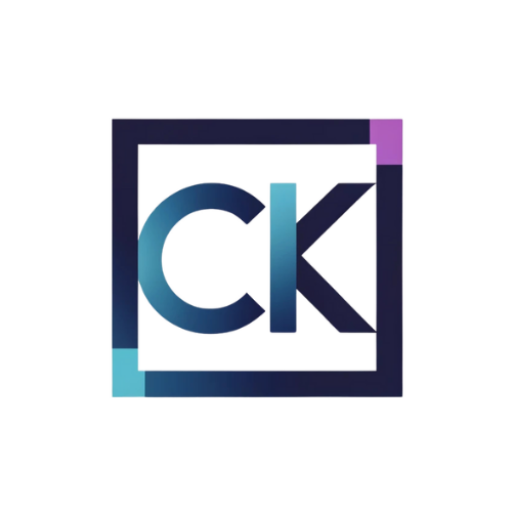Anúncios
The job market is evolving rapidly, influenced by various socio-economic factors, including technological advancements, shifts in worker values, and global economic conditions. As we delve into the current trends shaping the job market, one significant trend stands out: the rise of remote work and its ongoing transformation.
Remote work has surged in popularity, primarily driven by the COVID-19 pandemic, which forced many organizations to adapt swiftly to a new operating model. This shift has proven not merely temporary; it has redefined the landscape of employment. Organizations now see remote work as a viable option, often improving productivity and employee satisfaction.
With remote work becoming a staple, job seekers are now prioritizing flexibility and work-life balance. They seek opportunities that allow them to work from virtually anywhere, whether it’s from home, a café, or a co-working space. Consequently, companies are competing for talent by offering more flexible arrangements to meet these desires.
Employers also benefit from a broader talent pool, as remote work enables them to hire individuals from various geographical locations. This diversity can lead to enhanced innovation and creativity within teams, as different perspectives contribute to problem-solving and project development. Small businesses, in particular, have recognized the advantages of remote work, allowing them to access high-quality talent without geographical restraints.
The significance of hybrid work models is another emerging trend in the job market. While many organizations embraced full remote capabilities, many employees expressed a desire for a blend of in-person and virtual work. This hybrid approach allows individuals to enjoy the benefits of face-to-face collaboration while still enjoying flexibility in their work environment.
Anúncios
Moreover, companies recognize the importance of designing workspaces that accommodate hybrid teams. This means investing in technology that supports seamless communication and collaboration, as well as redesigning office layouts to facilitate teamwork and social interaction. The future workplace is evolving to ensure that all employees—remote or in-person—feel included and valued.
In addition to flexibility and hybrid work, mental health has become a pivotal focus for both employees and employers. As the pressures of balancing personal and professional life intensify, organizations are increasingly prioritizing mental health support. This includes offering employee assistance programs, workshops, and mental health days to enhance overall well-being.
Job seekers are now looking for employers who not only understand the importance of mental health but also actively promote a company culture that prioritizes well-being. Organizations that invest in their employees’ mental health see improved retention and employee engagement, creating a win-win scenario.
The emphasis on reskilling and upskilling is another key trend in today’s job market. As industries continue to evolve and adapt rapidly, the demand for skilled workers grows exponentially. Employers are beginning to understand that investing in their employees’ professional development is essential to retain top talent and maintain competitiveness.
Reskilling initiatives enable workers to transition into new roles within their organizations, safeguarding job security in the face of automation and technological advancements. On the other hand, upskilling allows employees to enhance their existing skills and adapt to new tools and processes, ensuring they remain valuable assets to their companies.
Furthermore, the demand for digital literacy has risen sharply, and workers are expected to demonstrate proficiency in a range of technological tools. Companies are now prioritizing candidates who possess not only technical skills but also a willingness to learn and adapt to new technologies continuously.
In light of these changes, educational institutions are also adjusting their curricula to meet industry demands. Partnerships between businesses and educational organizations are becoming more commonplace, facilitating a smoother transition from education to employment. Many companies are actively collaborating with universities to develop programs that prepare students with the skills needed in the current job market.
As businesses increasingly adopt technology-driven solutions, the demand for tech-savvy workers has skyrocketed. Fields such as data analysis, cybersecurity, and software development are experiencing rapid growth, leading to a surge in job opportunities. Additionally, many organizations are willing to provide training for employees to fill these roles, recognizing the importance of having a tech-savvy workforce.
The gig economy has also been significantly impacted by these trends. Freelancing and contract work offer flexibility and autonomy that many workers find appealing. The gig economy is burgeoning, as more individuals choose to work as independent contractors rather than seeking traditional full-time employment.
This shift represents a departure from the conventional conception of job security, leading to a rise in self-employment and entrepreneurial ventures. Many workers view gig work as a way to pursue their passions while maintaining a steady income, resulting in a diverse and dynamic labor market.
However, the gig economy also comes with its challenges, including lack of benefits and job stability. Workers in this space often seek platforms that provide support and security, such as health insurance and retirement contribution options. Companies that address these needs may find themselves better positioned to attract and retain talented freelancers.
As we explore the trends reshaping the job market, we cannot overlook the role of inclusivity and diversity in hiring practices. Workers are looking for organizations that prioritize equality and social justice. Companies that actively promote diverse hiring practices often attract a wider array of candidates, enhancing creativity and fostering innovation.
A diverse workforce is known to improve business performance and contribute positively to workplace culture. By creating an inclusive environment, organizations can harness the unique contributions of individuals from various backgrounds, ultimately driving better business outcomes.
The ongoing focus on diversity has influenced not only hiring practices but also organizational cultures. Companies are beginning to recognize the importance of fostering an inclusive environment where all employees feel valued and heard. This, in turn, can enhance employee morale and productivity.
As younger generations enter the workforce, their values and expectations influence organizational practices significantly. Generation Z, in particular, emphasizes ethical considerations and social responsibility in their employment choices. Companies that align with these values have a better chance of attracting and retaining top talent.
Sustainability has become a key concern for many job seekers, prompting companies to embrace eco-friendly practices. By adopting sustainable measures in business operations and demonstrating commitment to environmental issues, organizations can effectively attract a workforce that prioritizes ethical considerations.
The trend towards more environmentally-conscious business models indicates that the future of work is not solely about profitability; it also encompasses societal and environmental impacts. Employees are increasingly interested in working for companies that align with their personal values, specifically relating to sustainability and community engagement.
As we contemplate the future landscape of the job market, adaptability emerges as a vital trait for both employees and employers. The rapid pace of change requires a willingness to embrace new technologies, ways of working, and shifts in societal expectations. Organizations that promote a culture of continuous learning will foster an agile workforce capable of navigating future challenges.
Moreover, as the job market remains dynamic, professionals must remain proactive in building new skills and networking. This approach will enable them to keep pace with changes and seize emerging opportunities. Engaging in professional development activities and attending workshops can greatly enhance career prospects.
In closing, the job market is undergoing profound transformation, shaped by trends such as remote work, hybrid models, mental health focus, and reskilling opportunities. As organizations endeavor to attract top talent, prioritizing inclusivity, sustainability, and employee well-being will become increasingly essential. Companies and individuals alike must remain agile and embrace an ethos of lifelong learning, cultivating a resilient workforce capable of thriving amidst the complexities of the modern world.



